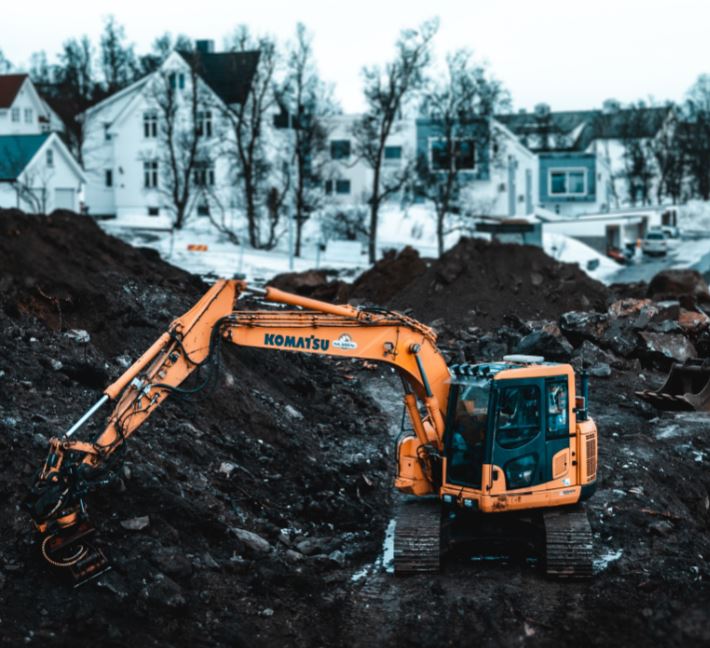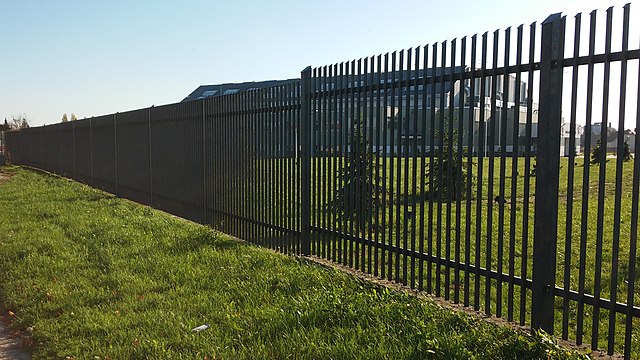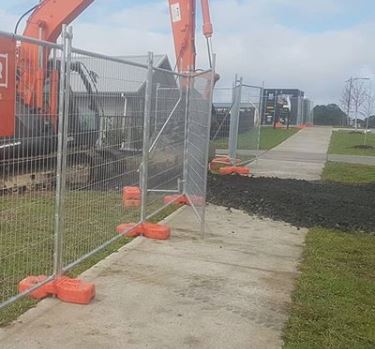It’s just as necessary to prepare a building site as it is to frame the walls and shingle the roof. Invest in site preparation if you want your home or office to last for many years.
What Is the Importance of Sitework?
Any work done on a construction site prior to when the actual construction takes place is referred to as site work. Plumbing, drainage, and utility installation may or may not be included.

It’s all too easy to get caught up in the construction of the new building and overlook the project’s site work while getting started on a new construction project. On both commercial and industrial projects, site work is just as crucial, if not more so, than your new structure.
The process of preparing a construction site for a job is known as site work and excavation. This phase of the construction process includes a number of activities that take place on the job site and is an important aspect of the project. Sitework will differ from project to project and will be influenced by factors such as the project’s needs and the surrounding environment.
The following are a few items that may be required for site work on your building site, as well as why they are important.
Job site prep or site works construction, provides a solid foundation.
The lack of a solid foundation will cause a lot of long-term damage to a structure. If the earth beneath your building is excessively soft, the foundation of your building may shift, limiting its life and necessitating costly repairs.
If damage occurs as a result of a faulty foundation, it may result in a responsibility claim over the construction quality. As a result, you should always hire a business that specializes in site work. One of the most significant aspects of building construction is the stability of the ground. The construction will last longer if the ground is stable. The fewer problems you’ll have to deal with in the future, such as foundation sagging and sinking, the better.
Furthermore, site work ensures that the building is level. The building will not be as stable if it is not built on a level surface. You’ll be able to tell the difference in the way the building appears and feels. There are a few key components to successful site work. Let’s look at these in more detail right now.
Clearing
The clearing of the area is the initial step in the procedure. Your contractor will clear the construction site of all bushes, shrubs, and trees. Clearing and grubbing is the part of site work that removes vegetation from the working site, such as bushes, shrubs, trees, and other plants.
Due to regulatory and environmental concerns, clearing and grubbing may require different processes depending on the types and quantities of vegetation on your job site. Because enormous trees must be removed in a thickly wooded location, this takes longer and costs more. Not only must they cut down the trees, but they must also remove the stumps and roots.
Before you start clearing, make sure you know the rules in your area. Cutting down specific trees or plants is prohibited in some locations.
Excavating
Excess dirt and rocks will be removed from your construction site during excavation. On many industrial construction sites, soil and rock excavation can be time-consuming. It frequently necessitates the employment of large machinery to do the task properly.
Experienced excavators have the knowledge and skills required for this difficult task.
To remove surplus soil, contractors excavate the area. This could entail chopping down the side of a hill to create a way for the new structure. Alternatively, you might dig a hole to house a new septic system.
When this is being done, a huge excavator is usually present. Extra dirt is removed or used to fill in low locations on the site.
It’s also crucial to clear anything that emerged following the cleaning process during excavation. This could include roots from long-dead trees, or big underground rocks.
Tying in the Utilities
The efficiency of your building is determined by how well the utilities are integrated. Sitework includes filtration systems, septic tanks, and underground pipes for sewer, water, gas, and electricity. To avoid complications while connecting everything to your building, all of these must be installed with care and precision.
Leveling
It’s time to level the soil once it’s in the proper location. To move the dirt to the right spots, your contractor employs a backhoe or a skid loader. They’ll then use a construction leveling device to make sure the foundation is level across the board.
The creation of a graded slope is also an important aspect of leveling. This means that water flows away from the structure rather than toward it.
They fill in low locations with dirt during excavation to ensure that they are at a sufficient slope. During the leveling procedure, this dirt is smoothed out to ensure that the slope is not excessively steep or too shallow.
Stabilizing
The soil is moved throughout the excavation process, making it softer and less stable. And the less stable the soil is, the larger the soil particles are. Stabilizing the soil eliminates any air pockets or holes that may exist beneath the top layer of earth. Subgrade stabilization is required to ensure that your construction site is free of cracks and other structural problems.
The soil just underneath the topsoil is stabilized during subgrade stabilization to prevent any shifting or collapse. This is an important aspect of site work that will help ensure the project’s integrity. The soil is compacted by the contractor using a heavy roller. It’s also possible to use a vibration compactor for this.
Make sure the site is ready for the best results
At Eastcoast Site Work, we understand the importance of safety and precision in all aspects of site work, especially when it comes to operating heavy equipment. Our team of skilled professionals is dedicated to performing tasks accurately and efficiently, ensuring a secure job site for all involved.
For a solid foundation that will support your home for years to come, it’s crucial to invest in high-quality site work before construction begins. At Eastcoast Site Work, our process begins with land clearing, where we remove trees and brush from the construction site. Next, our excavation services create a level surface by excavating the area and ensuring no issues arise from drooping or sinking. Finally, our team compacts the dirt and completes fine grading work, preparing the site for the next phase of construction.
As a leading site work construction company in New Jersey, Eastcoast Site Work prides itself on being a heavy construction expert. We are committed to maintaining the highest standards of quality control and safety on every project.
Our comprehensive range of services includes:
- Dirt work near me
- Siteworks jobs
- Excavation services
- Land clearing
- Excavation companies
- Excavation contractors
- Excavation company
- Dirt work
For a free estimate and to learn more about how our services compare to other excavation companies, please contact us today. Let Eastcoast Site Work be your go-to choice for all your site work and excavation needs.
Get A Quote For Your New Jersey Construction Sitework Project
Call 732-370-0291 or Contact Us Now
Frequently Asked Questions
Q: What is dirt simple construction?
A: Dirt simple construction is a DIY approach to homebuilding that uses basic, readily-available materials and tools. It’s called dirt simple because it’s the most basic form of homebuilding – using just the dirt on your land to create walls and a roof.
Q: What does a tower site preparation contractor do?
A: A tower site preparation contractor prepares the ground for the construction of a telecommunications tower. They clear the site, remove debris, grade the land, and install erosion control measures. They may also be responsible for installing the foundation and anchoring system for the tower.
Additional Resources
- In this post, we discuss The Benefits of Erosion Control Tubes and Silt Socks.
- You can read about Dealing With Foundation Drainage Issues here.
- Read about Types of Soil Erosion and Mitigation Strategies here.
- This is a great article about What is Soil Stabilization in Road Construction.
- This is a great article to read about Why choose hydroseeding to establish a lawn instead of sod or dry grass seeding.



